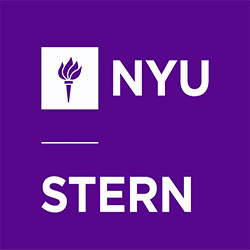I started a Tech MBA so I could “speak and understand” technology, but mainly to use it as a tool to face business challenges and scale solutions. I am enjoying the program as the mix of courses is accurate for this goal. There are incredible courses related to business and others to technology. There are many special courses, but my favorite one has been “Emerging Technologies and Business Innovation,” dictated by the professor Alex Tuzhilin.
This course wraps up what every person who wants to develop a career around innovation would need to know. It starts explaining innovation as the interaction between business, technology, and regulation. With this in mind, we discussed a framework that was present all over the course: the can-do/ should-do. This is a useful perspective to understand how and when to use certain technologies considering their feasibility, context, ethics, and business sense.
We reviewed the history of innovation and technology, watching how certain technologies faced a phase of hype due to an excitement of the market (many times overreaction), but then they lose its attention (and its capital) because they are not useful. Sometimes they just die, or sometimes they come more solid and disrupt markets. Getting to see this in a conceptual analysis, with a big picture perspective, is useful to be able to understand the nature of innovation and use it.
After this framework, we analyzed technologies that passed through the phase of gloom and now are succeeding. These technologies have the potential to shape many fields in business and human activities. We saw virtual reality, big data, knowledge management, and artificial intelligence. In each case we reviewed what industries are impacted and the challenges around them for the present and the future. We saw industries like healthcare, education, work, among others.
During the course we not only studied these conceptual topics, but also reviewed cases around each topic and received guest speakers to put what has been learned in perspective. I really enjoyed the course because it was totally conceptual – now I feel more prepared to analyze our fast-moving world. I feel I have the tools to feed my curiosity looking to the future with a more structured framework.
